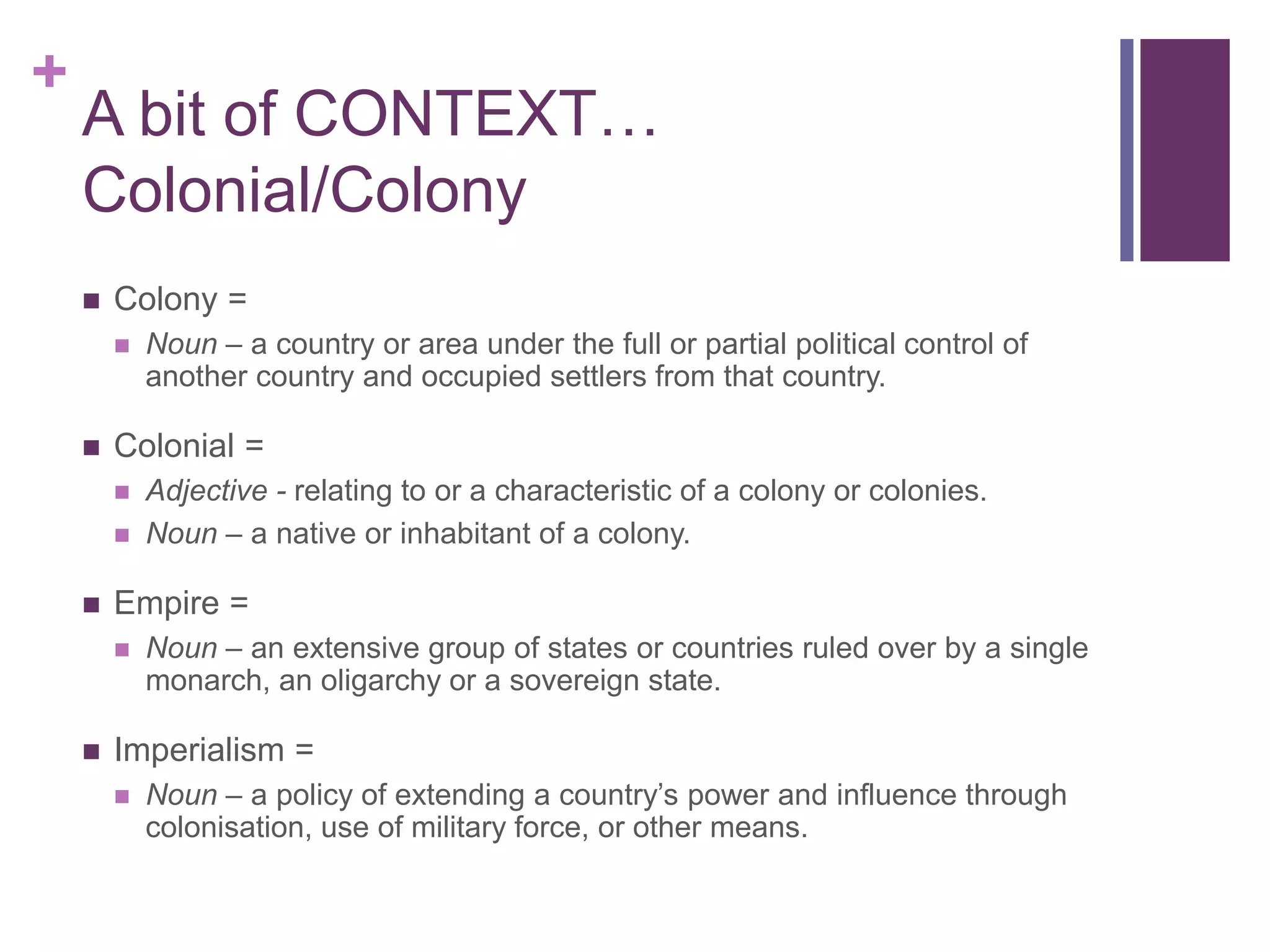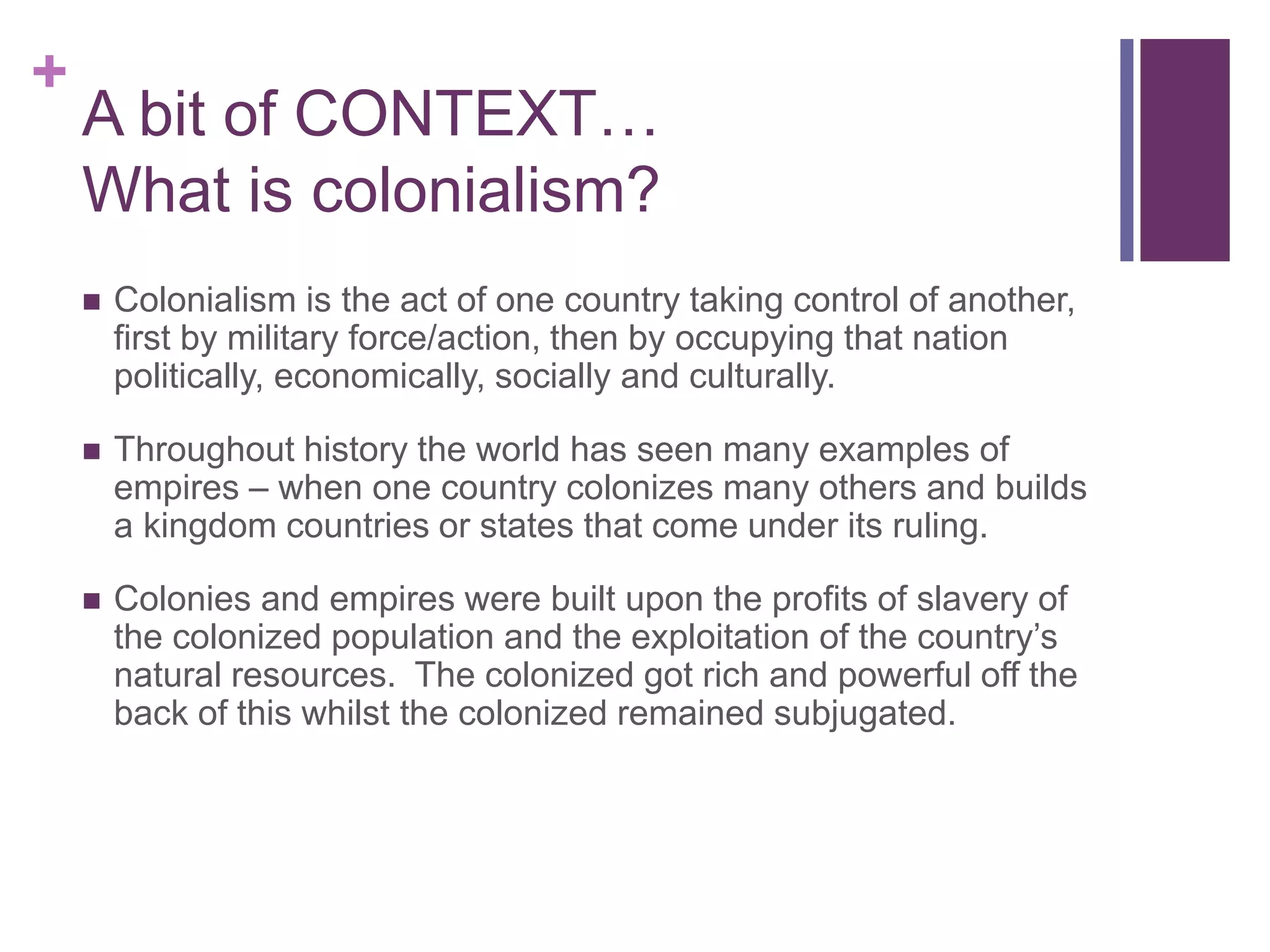This document provides context on colonialism, post-colonialist theory, and their relationship to globalization and media. It defines key concepts like colonialism, empire, cultural imperialism, and orientalism. It outlines the history of British colonialism and discusses post-colonialist thinkers like Edward Said, Frantz Fanon, and W.E.B. Du Bois. Their work examined how colonialism continues to impact formerly colonized societies and how media representations perpetuate colonial power dynamics. The document also discusses criticisms of post-colonialist theory and related topics like neocolonialism, diaspora, double consciousness, and the effects of globalization.

















![+
Frantz Fanon
Fanon is a psychiatrist who applied psychiatric analysis to
colonialism.
He described colonialism as essentially destructive and you
can link some of what he says to diaspora identity.
Fanon said:
“Its [colonialism] societal effects – the imposition of a subjugating
colonial identity – are harmful to the mental health of native people.
The ideological essence of colonialism is the systematic denial of all
attributes of humanity of colonised people.”](https://image.slidesharecdn.com/colonialsimpost-colonialism-150206061603-conversion-gate02/75/Colonialism-Post-colonialist-Theory-Globalisation-the-Media-18-2048.jpg)



